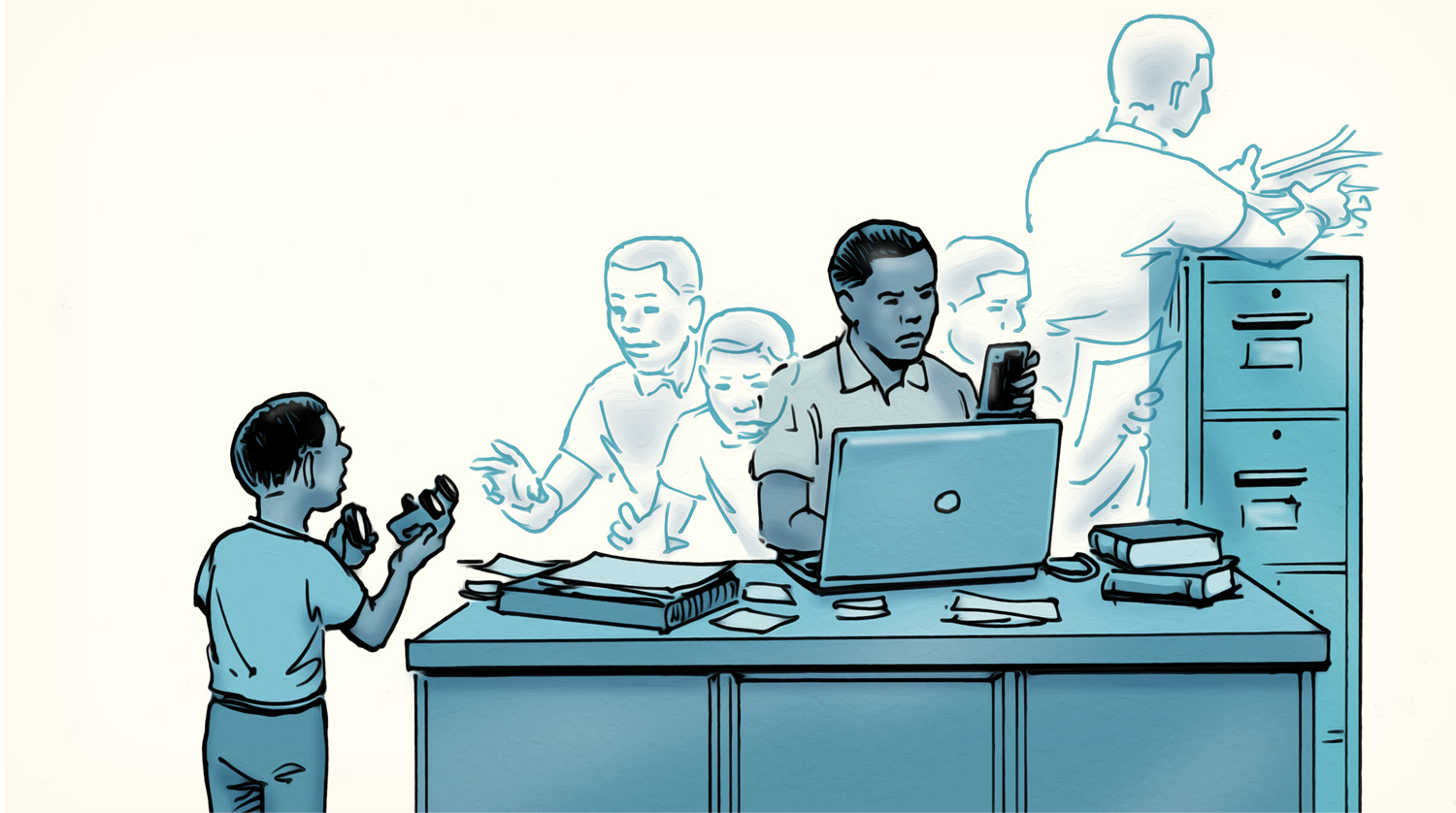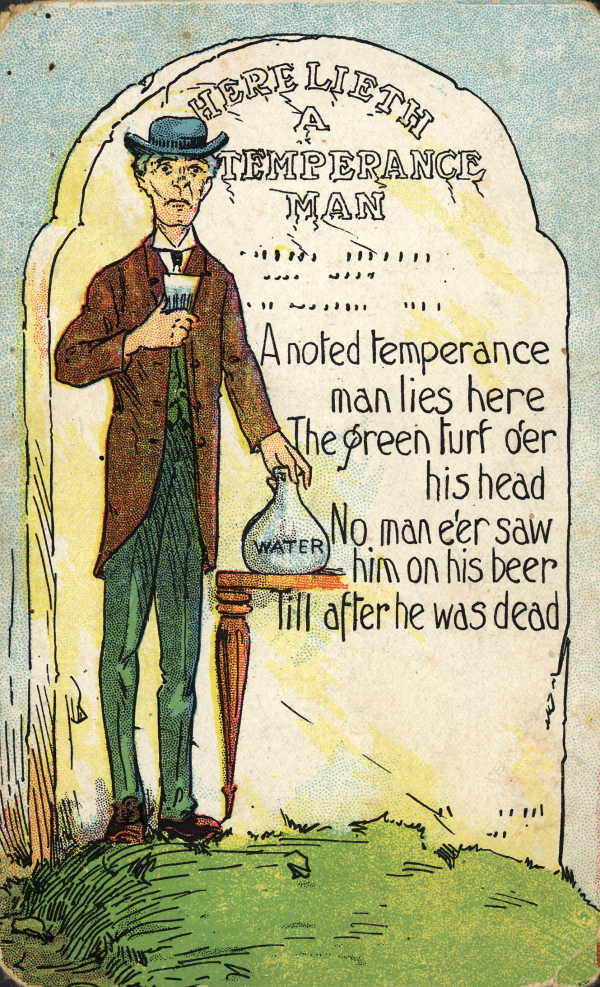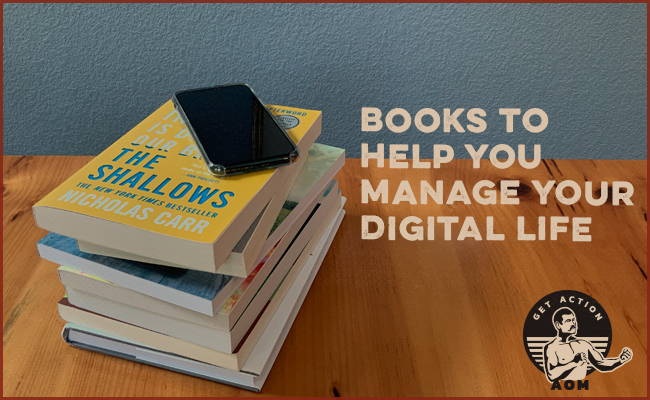
No pieces of technology are as central to modern existence as our digital devices. Just as primitive man always had a knife at hand to hunt, skin animals, and whittle for pleasure, our phones and laptops are the critical tools in both our work and play, constantly on our bodies, or just a quick reach away.
The connection is so intimate, so undeviating, that it’s hard to get real perspective on the relationship between ourselves and our devices. What is the technology giving us? What is it taking away from us? Are we losing more to it than we’re gaining? Are there ways to tip that equation more in our favor?
In the day-to-day press of life, it’s hard to keep these kinds of questions at the top of one’s mind, and more importantly, to take action based on their answers.
For that reason, I’ve found it beneficial to read at least one book a year about the intersection of digital technology and life — i.e., individuality, psychology, culture, and every other aspect of existence that tech touches. This reading gives me a more birds-eye view on things. It spurs me to continually reflect on and reevaluate the role of digital technology in my life, and to tweak that role to maximize its upsides and minimize its downsides.
Over the course of this reading, I’ve found the following seven books to have been particularly impactful; many of the authors have also been guests on the AoM podcast (the episodes are linked to below and well worth the listen).
Digital Minimalism by Cal Newport
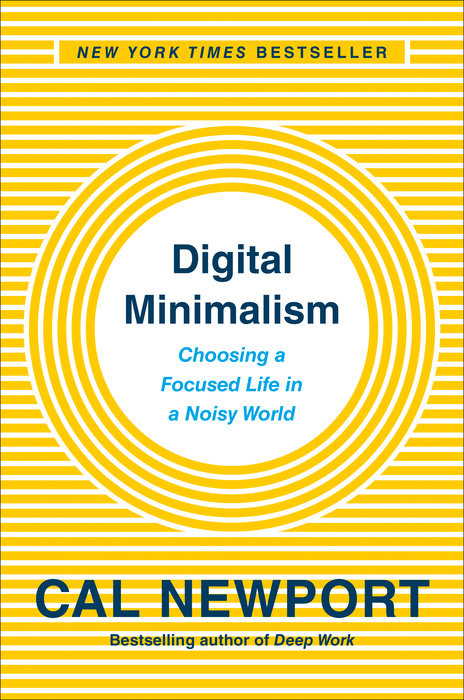
A lot of books in this subject area give cliched and/or general platitudes about how to give up the internet and social media: delete the worst apps, turn off notifications, make your phone grayscale to make it less enticing. That kind of advice is sort of helpful, but also feels like tips you’d give a child. Plus, they end up seeming like half measures by the time you’ve implemented them.
Cal makes the unique recommendation of going nuclear with your phone: delete pretty much all your apps and do a hard smartphone fast for at least 30 days (outside of what’s strictly necessary for work and personal communication with friends/family). Those who undertake the experiment may find it harsh at first, only to discover that it becomes like a brain cleanse that the soul has desperately needed. No half measures here; ditch your habits without abandon and only add back in the things that contribute an unalloyed benefit to your life.
Listen to our podcast interview with Cal.
The Joy of Missing Out by Christina Crook
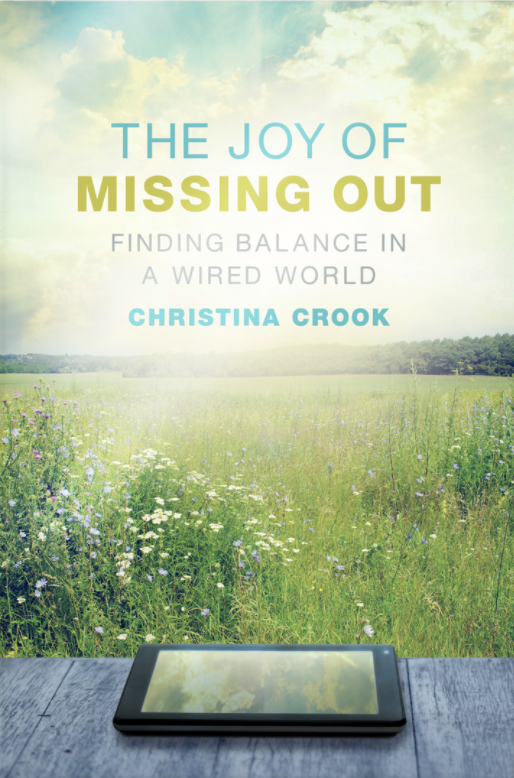
Whereas Newport takes an engineer’s approach to the problem of digital overload — laying out a clear point-by-point philosophy and remedy — Crook surveys the issue through a more poetic lens. Rather than tackling the tech itself, she asks questions: “How does the internet serve you? Is it connecting you — truly — in ways that bless and enliven your life and the lives of others?”
The answers that arise to such questions point towards the idea that the good stuff that life is made of is largely found in the real world — making a meal, walking with a loved one, tending to a garden. Crook’s insights prompt philosophical reflection on just about every page and her urging to embrace “good burdens” (“responsibilities that tether us to people and the physical world”) has stuck with me since I first read it five years ago.
Listen to our podcast interview with Christina.
Notes on a Nervous Planet by Matt Haig
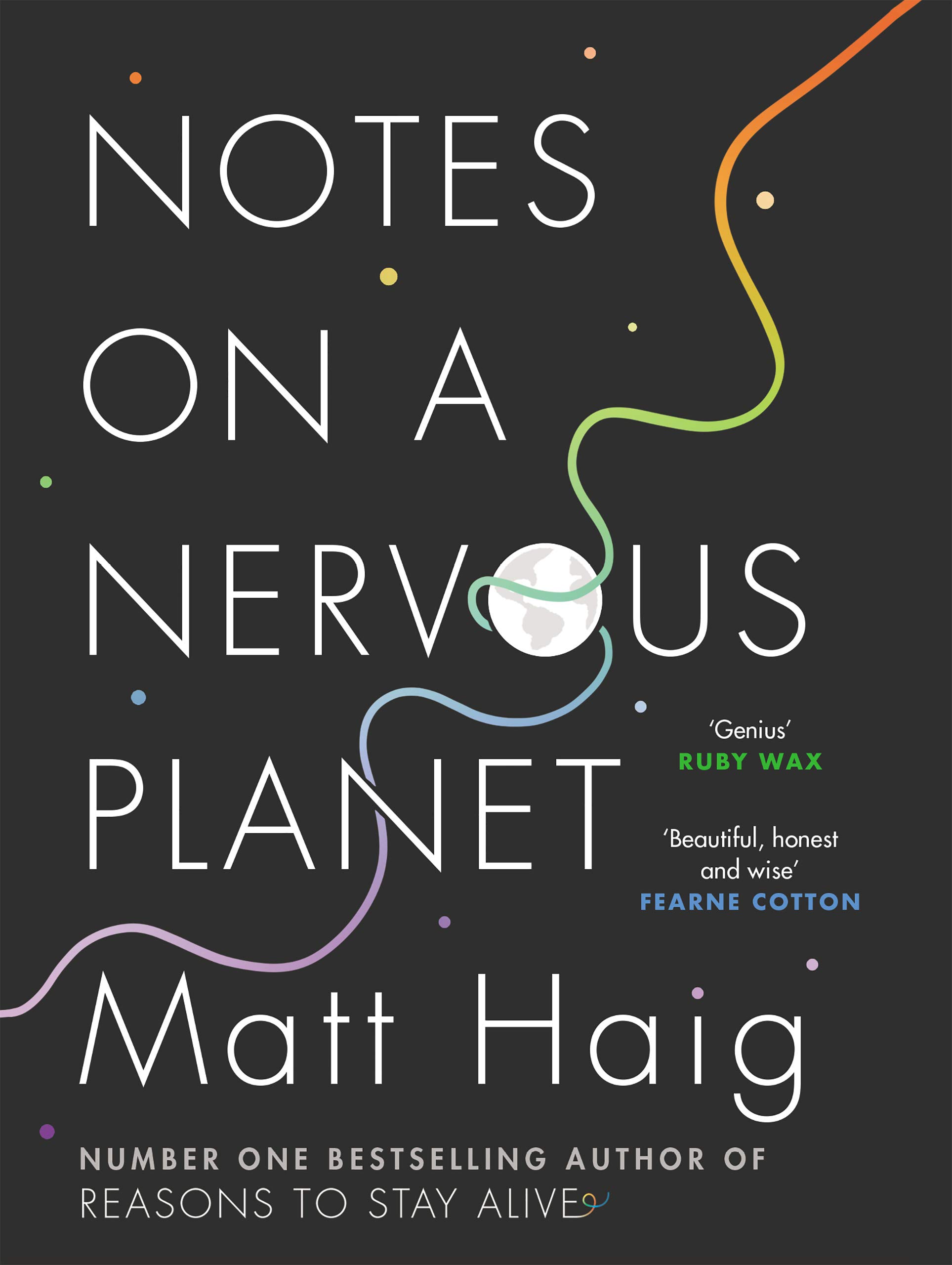
I first encountered Haig’s work in his novels How to Stop Time and The Humans. Both are fun stories that use creative plots to explore what it means to be a flourishing and fulfilled human. Notes on a Nervous Planet is a memoir-esque dispatch about how internet culture makes us antsy — the world itself seems like it’s having an anxiety problem.
Utilizing short chapters and even bullet-pointed lists at times, Haig writes about his experiences with sleep, utilitarian learning, the perils of Twitter, and more. Best taken in at a chapter per day, the personal touch of Haig’s writing will make you realize that most (though not all) of the time you spend online only serves to heighten your angst. The ultimate point, as with Crook’s work, is that “we need to find out what is good for us, and leave the rest.”
A Deadly Wandering by Matt Richtel
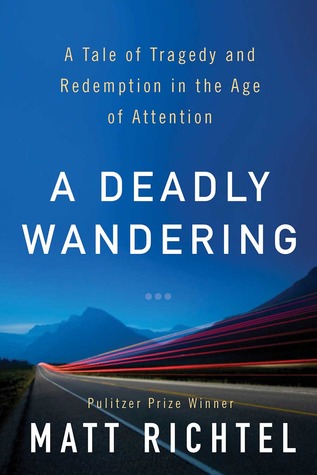
In the most emotionally moving (and heart-wrenching) book on this list, Richtel explores the then-groundbreaking science of attention through the tale of Reggie Shaw. In 2006, Shaw was a college student in Utah making an early morning drive through the mountains when he struck another car and killed two scientists on their way to work. The culprit? Though he initially denied it, the evidence was clear that Shaw was texting and driving.
The reader gets not only the science of attention and distraction — particularly when it comes to phone use and driving — but also the personal reckoning of coming to terms with how we live out that science in our everyday lives. When I’m tempted to sneak a quick look at my phone while driving, I think of this book, and how it can be “safe” a million times, but then on that millionth-and-first glance you could kill someone. This is a book and a story that will stick with you long after reading.
Bored and Brilliant by Manoush Zomorodi

If Newport’s book was more how-to and Crook’s was more poetic, Zomorodi’s is a fun middle ground. Through her own weakness for the game Two Dots — a weakness that I also had at one time — Manoush experiments with what it’s like to give your smartphone the Newport treatment and take away all the “fun” stuff. What she primarily found was her own boredom. I had a similar experience with my own 4-week social media fast.
While it’s indeed a little boring to be bored, there are enormous benefits to be found in that state of being. Allowing the mind to wander turns out to be an extraordinarily useful and healthy thing. Plus, as you get better acquainted with boredom, you come to realize that observing the world around you, making small talk, and taking a few minutes to just think through something are more valuable than whatever is on your screen.
Listen to our podcast interview with Manoush.
Irresistible by Adam Alter
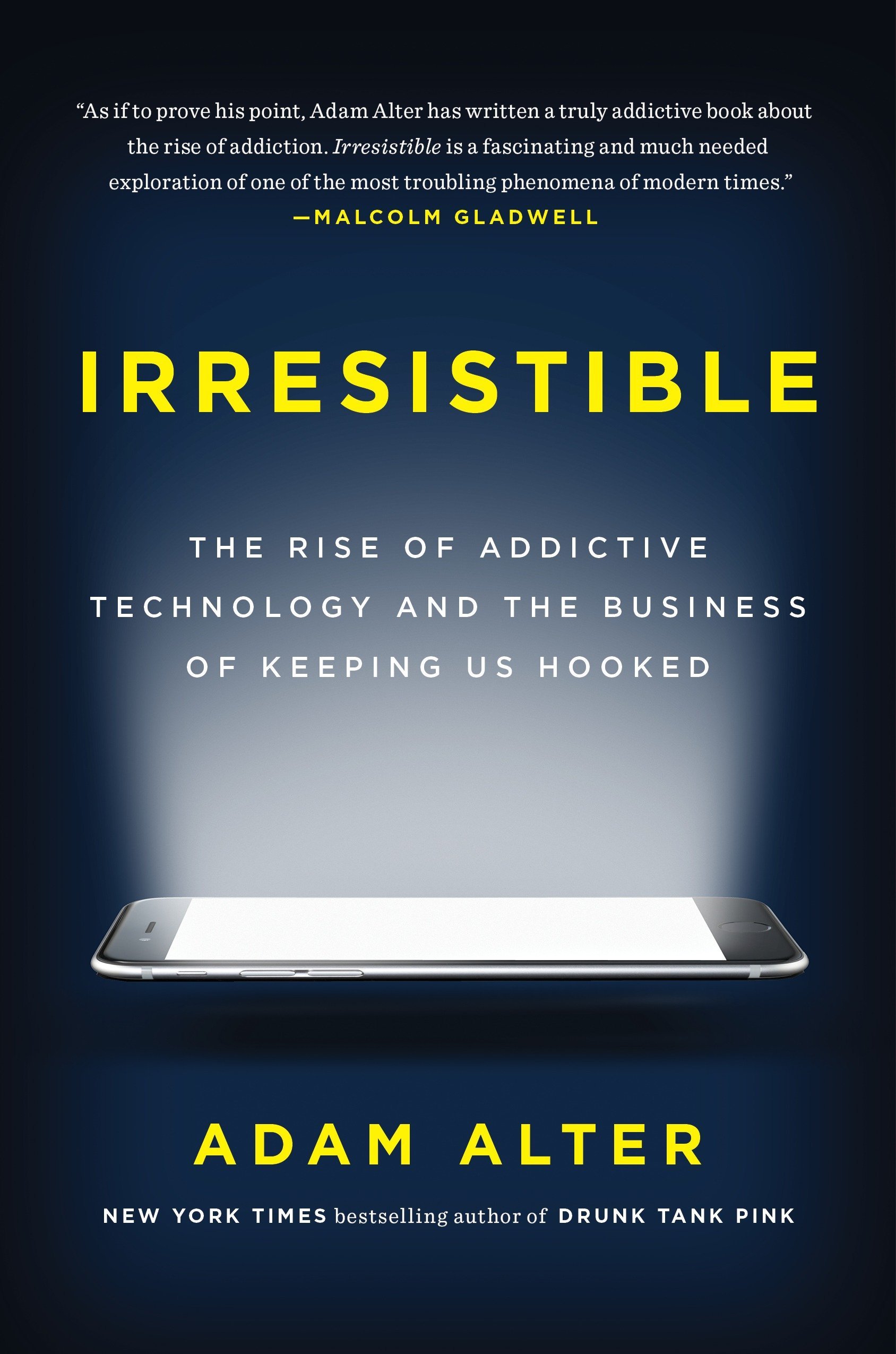
The previous books on this list are largely about managing the downsides of our digital life as well as exploring the benefits to putting our phones down. In Irresistible, Adam Alter tracks how we got here in the first place — how our screens and apps have hijacked our attention and become so hard to put down. What’s happening in our brain when we scroll Instagram? How did tech companies design these games and apps in ways that make us insatiable for their digital rewards?
This book will make you come to grips with your own behavioral addictions (which, to be sure, are vastly different than biological addictions). There’s indeed some shame in realizing how glued you are to your devices, but then Alter helps you reverse engineer that fixation in order to live a more balanced and intentional life. While our screens are good at holding us captive, in the end they’re just “dumb” computers that live in our pockets.
Listen to our podcast interview with Adam.
The Shallows by Nicholas Carr
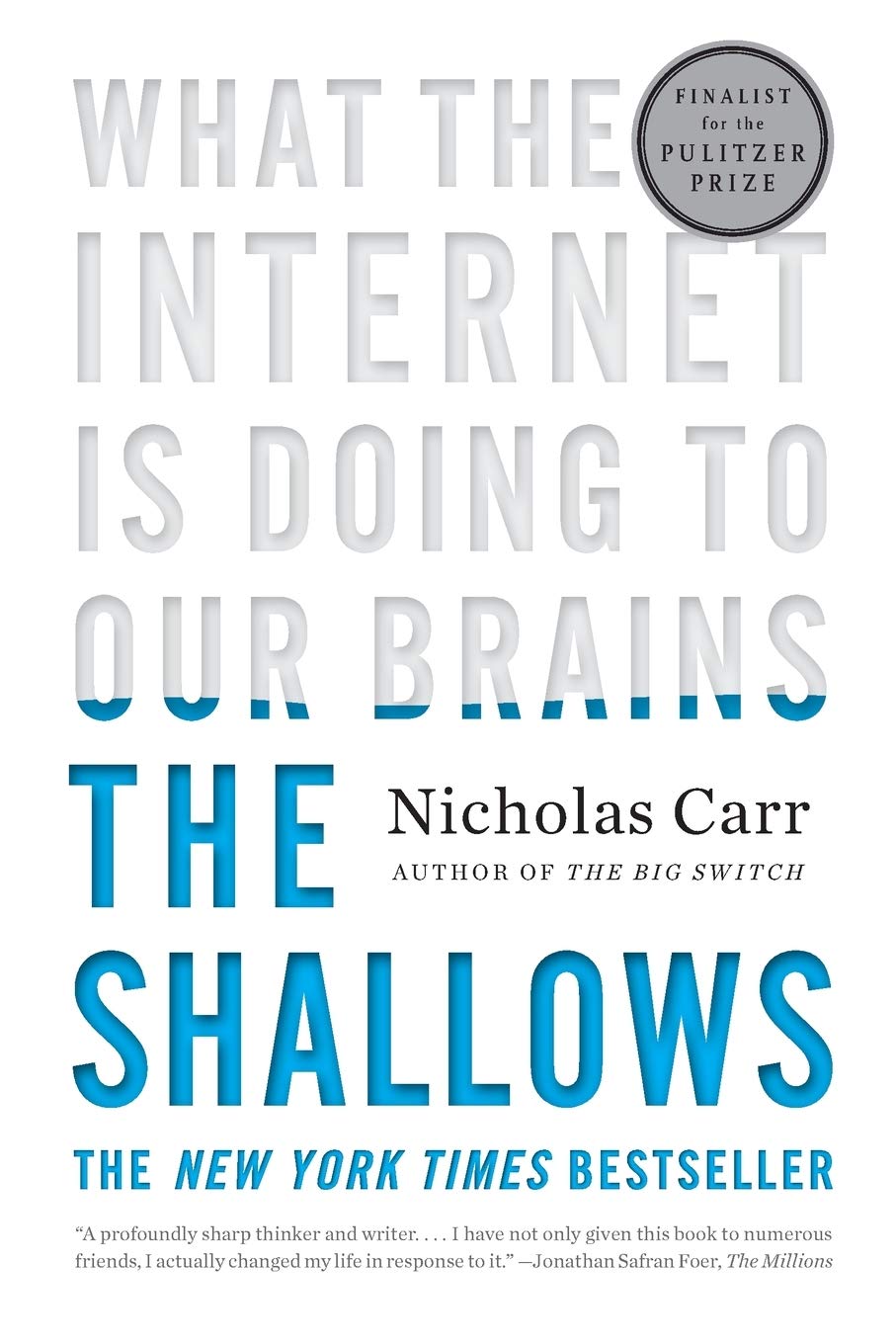
Of any of these books, this is the one that makes me feel the grossest about the internet as a whole. The Shallows was originally published a decade ago, but its insights about what the internet does to our brain and our cognition are as relevant as ever, if not more so. Building on the work of Marshall McLuhan (and, I’d argue, of Neil Postman as well), Carr starts by walking the reader through the history of intellectual technologies and how they’ve shaped our cultures and way of being. The change from an oral culture to a visual/reading culture was especially impactful.
But now, we’ve moved from that reading culture to an internet culture — we’re still reading things, but in a different way. (Also, we’re YouTub-ing and TikTok-ing now.) The medium of a screen has fundamentally changed how humans process and think. As the title suggests, Carr argues that the web has inherently made our thinking shallow and unfocused. There’s less depth to our world when it’s filtered through the distraction-filled internet. The Shallows is a much-needed jeremiad that seems to get more poignant as the years go on.
Listen to our podcast interview with Nicholas.
If you like these book recommendations, check out my weekly bookish newsletter, What to Read Next.
Tags: Books




